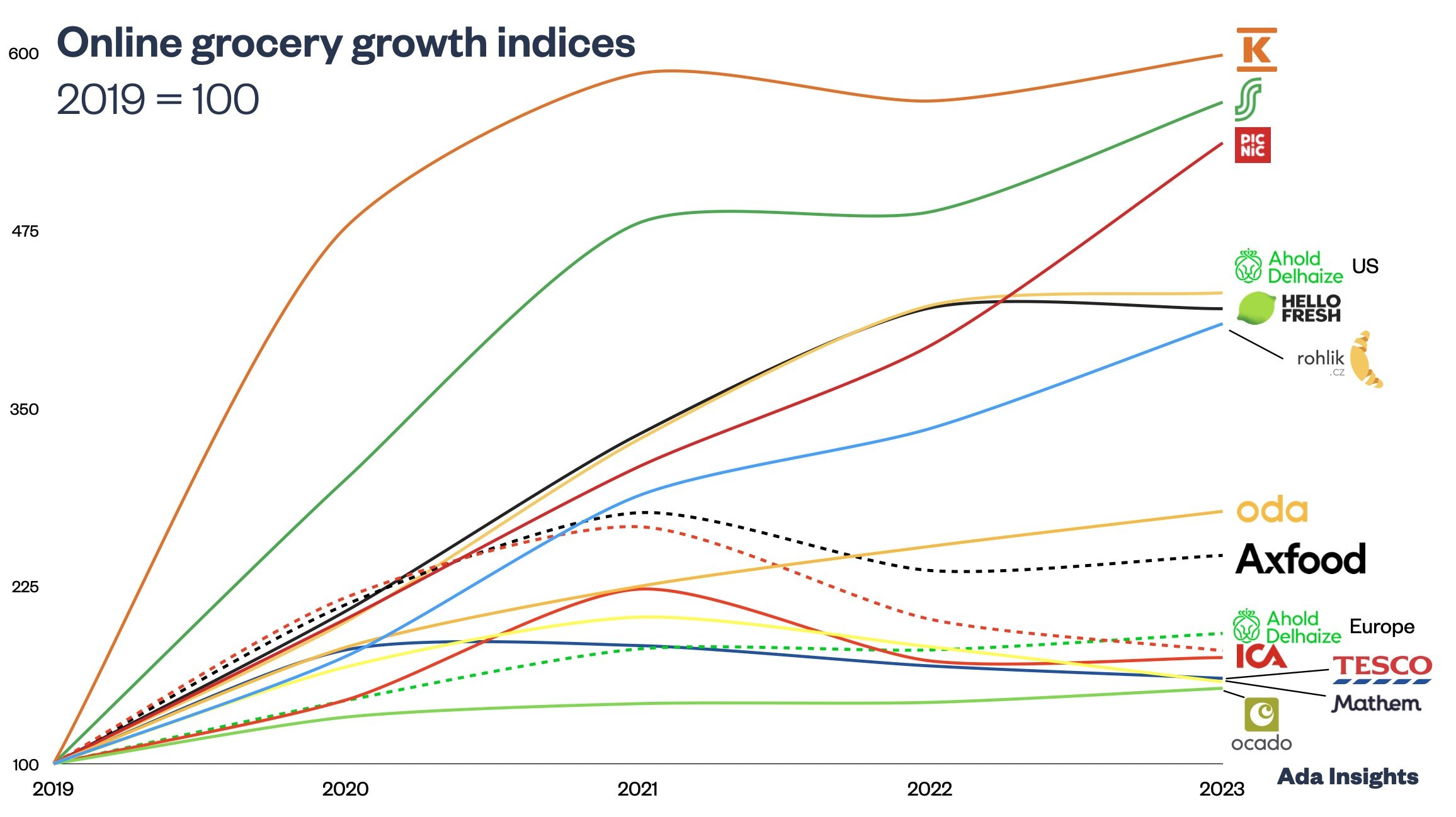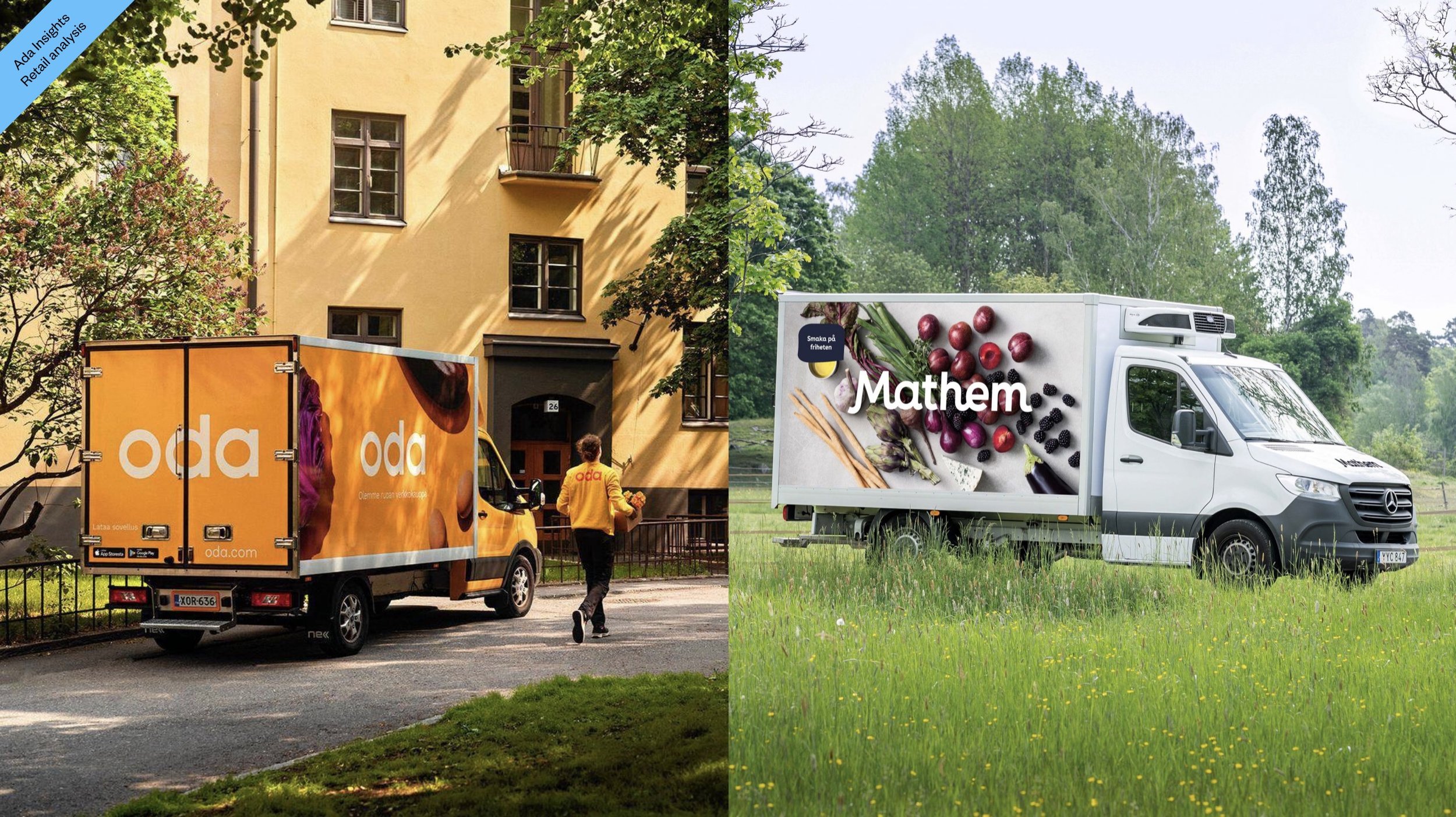Is Berlin the hotbed of online grocery competition in Europe?
Image source: Picnic
A couple of weeks ago, Oda announced it was about to withdraw from Finland to focus on the German operation. If Oda thought Finland was a challenging market, they might soon realise that Germany is no easier. It might turn out to be even more difficult.
German grocers have for years been slow to adopt the online channel. The country is the home of Zalando and many other pure-play online retailers and the biggest international market for Amazon. This proves that Germans are very adept at buying things online. Grocers have just not taken the opportunity.
Changing German grocery market
However, this is changing fast as many pure-play online grocers have launched in the country. The Dutch Picnic has operated in Germany since 2017 and has grown rapidly. While Picnic entered Germany from the Düsseldorf region, Oda entered via the capital Berlin. The third pure-play online grocer, Knuspr (by the Czech Rohlik Group), is growing in Munich.
On Monday, Picnic announced that it also is launching operations in Berlin. The operation covers 15 districts and has approximately 35 000 people on the waiting list. This announcement will turn Berlin into one of Europe’s most fiercely competitive online grocery hotspots. Currently, alongside Picnic and Oda, the grocery giant (#2 in the market), Rewe offers an online grocery service in the city. Besides them, among others, Flaschenpost, Flink, Getir, Gorillas (and presumably restaurant couriers Wolt and Foodora) and Amazon Fresh offer Berlinians the opportunity to buy groceries online.
What is a moat in one market, might not differentiate in another
In Finland, Oda could differentiate with cheap home deliveries, an intuitive customer experience and especially the centralised warehouse, which could offer customers next-day delivery reliably. In Berlin, there is no possibility of differentiating between those. Picnic has all that, except the vast selection of delivery windows.
The milkman, as Picnic refers to itself, offers only one window per day. On the other hand, Rewe, Flink, Getir, Gorillas and Amazon most probably provide a wide variety of home delivery slots. Picnic says it differentiates itself with always free home delivery and the lowest prices.
The lowest prices can be achieved by reducing margins (expensive) or with good sourcing terms. Picnic has partnered with the biggest grocer in the country, Edeka. With 60+ billion euros in revenues, Edeka is one of the biggest grocers in Europe. This offers excellent leverage for Picnic to outcompete the pure-play online rivals. The competitive moat of Picnic becomes even more profound as the company always offers free home delivery and a similarly intuitive customer experience than any of its pure-play rivals.
As Oda does not have the backing of a company the size of Edeka, it has to invest heavily to become price-competitive in the Berlin market. This will be difficult and expensive as the German market has always been very price-sensitive.
One hope for all of the online grocers in Berlin is that the proliferation of online grocery players will increase the market rapidly. Thus, the rising tide would lift all the boats. This might only be wishful thinking, as some players might get an overly big advantage from the rising tide. The growth in the market can also drive competition for customers into overdrive, thus driving some of the players out of the market.
All in all, Berlin has become Europe’s most attractive online grocery market, especially as Knuspr will eventually join the race with another company vying for the money of the Berlinians.

















